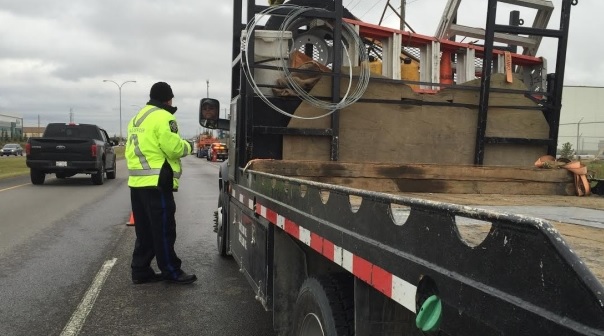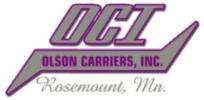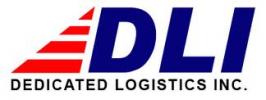Roadcheck inspection blitz coming in early June
Submitted by Bill on
The Commercial Vehicle Safety Alliance’s annual International Roadcheck inspection spree will be held next month, June 6-8, across North America.
CVSA plans the 72-hour event each summer to “conduct compliance, enforcement and educational initiatives.”
Cargo securement will be the main point of emphasis for inspectors this year. While this is a normal part of CVSA’s Level I inspections, the organization says its inspectors will be highlighting cargo securement as a reminder to drivers and fleets of its importance.
To help prevent violations related to load securement during the inspection spree, CVSA says to make sure the load and all equipment is properly secured, and to inspect tie-downs to check for wear and damage.
CVSA says an average of 15 trucks and buses are inspected every minute across North America during the 72-hour event. During the 2016 inspection spree, inspectors placed 21.5 percent of trucks inspected out of service, along with 3.4 percent of drivers, or 9,080 trucks and 1,436 drivers.
Fleets and drivers will need to be up to date on cargo securement requirements and regulations in a little over a month when the Commercial Vehicle Safety Alliance conducts its annual 72 hour Roadcheck inspection blitz.
Roadcheck will be held June 6-8 across North America. While inspectors will be primarily conducting Level I inspections, they will be keying in on how loads are secured during the event. Violations related to load securement include failure to prevent shifting and/or loss of load; failure to secure truck equipment such as tarps, dunnage, doors, tailgates, spare tires and more; damaged tie-downs (unacceptable wear on chains or cuts and tears on web straps); insufficient tie-downs; and loose tie-downs.
Know the regulations. Cargo securement standards represent the minimum safety requirements for general cargo and some specific commodities. • The Federal Motor Carrier Safety Administration (FMCSA) outlines U.S. cargo securement rules on its website at www.fmcsa.dot.gov/regulations/cargosecurement/cargo-securement-rules. •
Properly secure your load, as well as all equipment. Cargo must be firmly immobilized and secured on or within a vehicle. And while safe cargo securement principles and regulations apply to every item carried for delivery, they also apply to anything else on or in the truck, including dunnage, tools and equipment. Shovels, blocks, webbing, chains, spare tires, brooms, forklifts, pallet jacks, winches, ratchets, etc., all must be secured. Also, remember that an enclosed van trailer may not be sufficient securement for the load you are transporting. Many large or heavy loads may need additional securement in an enclosed van to safely secure the load. Bungee cords and tarp straps must not be used as primary securement for loads or equipment. Inspect tie-downs for wear and damage. Regulations require tie-downs to be attached and secured in a manner that prevents it from becoming loose, unfastening, opening or releasing while the vehicle is in transit. But over time, tie-downs can become worn, torn or damaged. Make sure you inspect tie-downs for damage. CVSA’s North American Standard Outof-Service Criteria includes a helpful tie-down defect table for chain, wire rope, cordage, synthetic webbing, steel strapping, fittings or attachments, and anchor points. If worn or damaged, tie-downs should be removed and replaced. Use best practices and due diligence. There may be best practices, established by consensus by those who haul what you’re hauling, that are worth following. If your shipment is more unique, do your research. Find out what works best. But always make sure your load is properly contained, immobilized and secured so that it cannot leak, spill, blow off, fall from, fall through or otherwise be dislodged from the vehicle, or shift upon or within the vehicle to such an extent that the vehicle’s stability or maneuverability is affected. Loads that shift can not only cause crashes but can also damage your equipment. And improper cargo and equipment securement violations will affect your company’s safety rating.
Here are the Top Load Securement Violations:
1. Failure to prevent shifting/loss of load
2. Failure to secure truck equipment (tarps, dunnage, doors, tailgates, spare tires, etc.)
3. Damaged tie-downs (unacceptable wear on chain or cuts and tears on web straps)
4. Insufficient tie-downs
5. Loose tie-downs
More Recent News Stories








